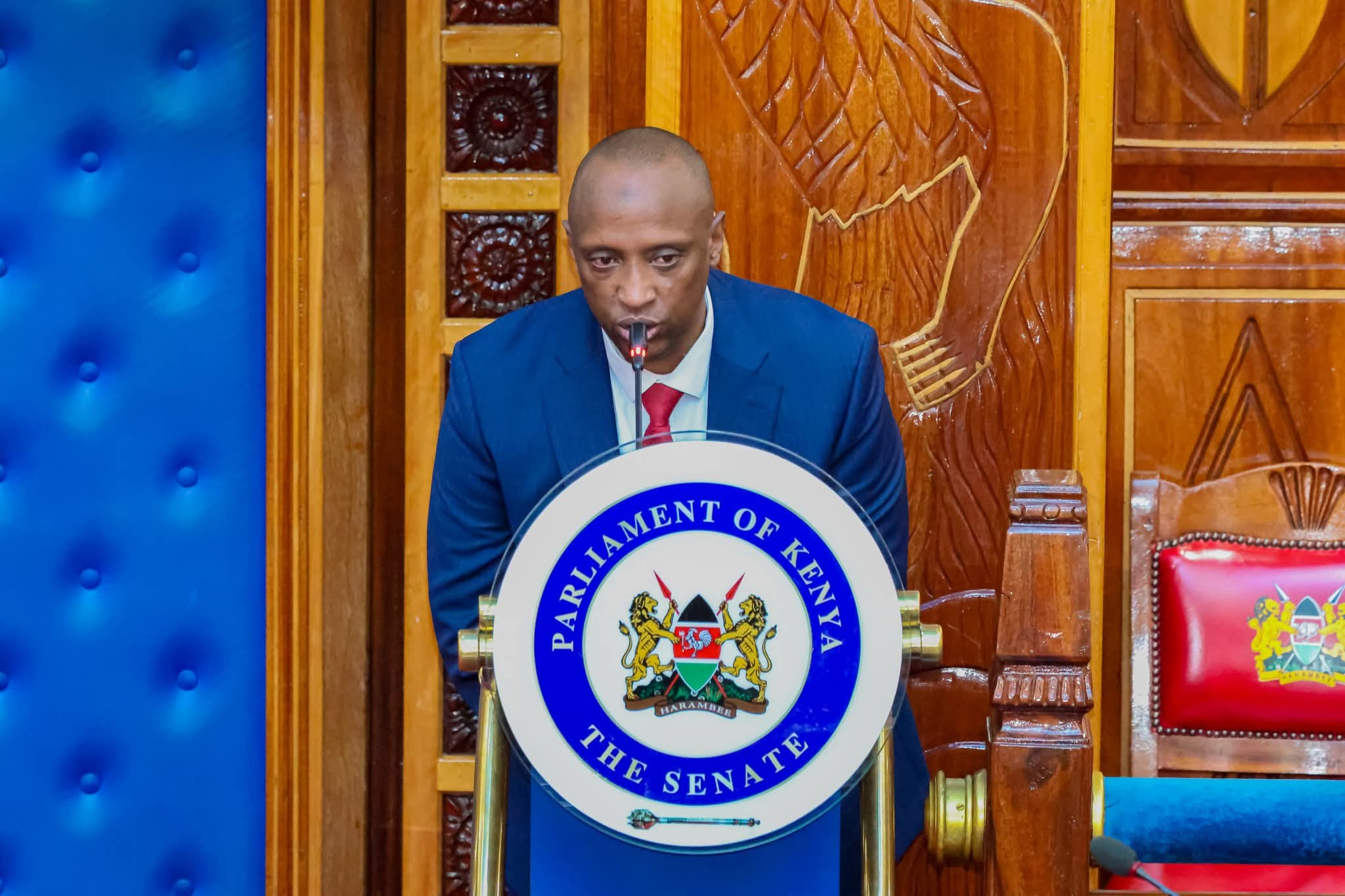 Isiolo Governor Abdi Ibrahim when he appeared before Senate. Photo Senate Collection.
Isiolo Governor Abdi Ibrahim when he appeared before Senate. Photo Senate Collection.
By Andrew Mbuva
Isiolo Governor Abdi Ibrahim Hassan has survived an impeachment attempt after the Senate poked holes in the process used by the County Assembly, declaring it flawed and legally untenable.
In a decisive move, 31 Senators voted on Monday to uphold preliminary objections raised by the Governor’s legal team, effectively saving him from facing a full Senate trial. Only 12 Senators voted to proceed with the trial, while none abstained.
Governor Hassan was impeached by the Isiolo County Assembly on June 26, 2025, over allegations of constitutional violations, abuse of office, and gross misconduct. However, the matter did not proceed to full hearing in the Senate, as the Governor’s lawyers successfully argued that the process leading to his removal did not meet the constitutional and legal thresholds required under Article 181 of the Constitution and Section 33 of the County Governments Act.
In his remarks during the Senate debate, Senator Boni Khalwale emphasized that “the process is as important as the reasons for removal of a Governor from office,” urging County Assemblies to strictly follow constitutional procedures.
Senator Danson Mungatana echoed similar sentiments, casting doubt on the integrity of the process. “We are wasting time discussing a meeting that never was,” he said, citing the lack of evidence such as notice of Motion, minutes of the House Business Committee, and video footage of the sitting.
Senator Enock Wambua added, “The process must bear us out. We cannot circumvent the process and MCAs must get the process right.”
The Governor’s legal team, led by Advocates Eric Theuri and Elias Mutuma, challenged the legitimacy of the impeachment Motion, arguing it lacked legal standing and failed to satisfy the procedural requirements. Mr. Theuri dismissed the proceedings at the County Assembly as a “phantom impeachment,” questioning the authenticity of Hansard records and calling them a “misrepresentation of facts.”
“The Hansard records were cooked and generated outside the precincts of the County Assembly,” Theuri claimed, adding that the High Court in Meru had already issued conservatory orders invalidating the Assembly’s proceedings and declaring its resolutions null and void.
Key discrepancies highlighted included conflicting times for the special sitting. While official invitations to the Governor indicated a 9:00 a.m. sitting on June 26, the Hansard submitted to the Senate stated the sitting occurred at 2:30 p.m. Mr. Theuri argued that this contradiction raised serious doubts about the credibility of the impeachment process.
Further compounding the controversy, the Hansard reports submitted were not certified and bore only a stamp—raising concerns of potential forgery and manipulation. “There were glaring anomalies between the Hansard and other documents submitted. This impeachment was not only illegal but also procedurally defective,” said Mr. Mutuma.
The Senate’s decision to halt the impeachment trial marks a significant win for Governor Hassan and a stinging rebuke to the Isiolo County Assembly, which now faces scrutiny over its handling of the matter.
The ruling sends a clear message to County Assemblies across the country: adherence to due process is non-negotiable when dealing with the removal of elected officials